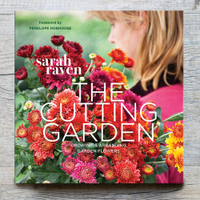How to grow hyacinths indoors: an expert guide for fragrant flowers
Learn how to grow hyacinths indoors to elevate your winter decor – it only takes a few steps
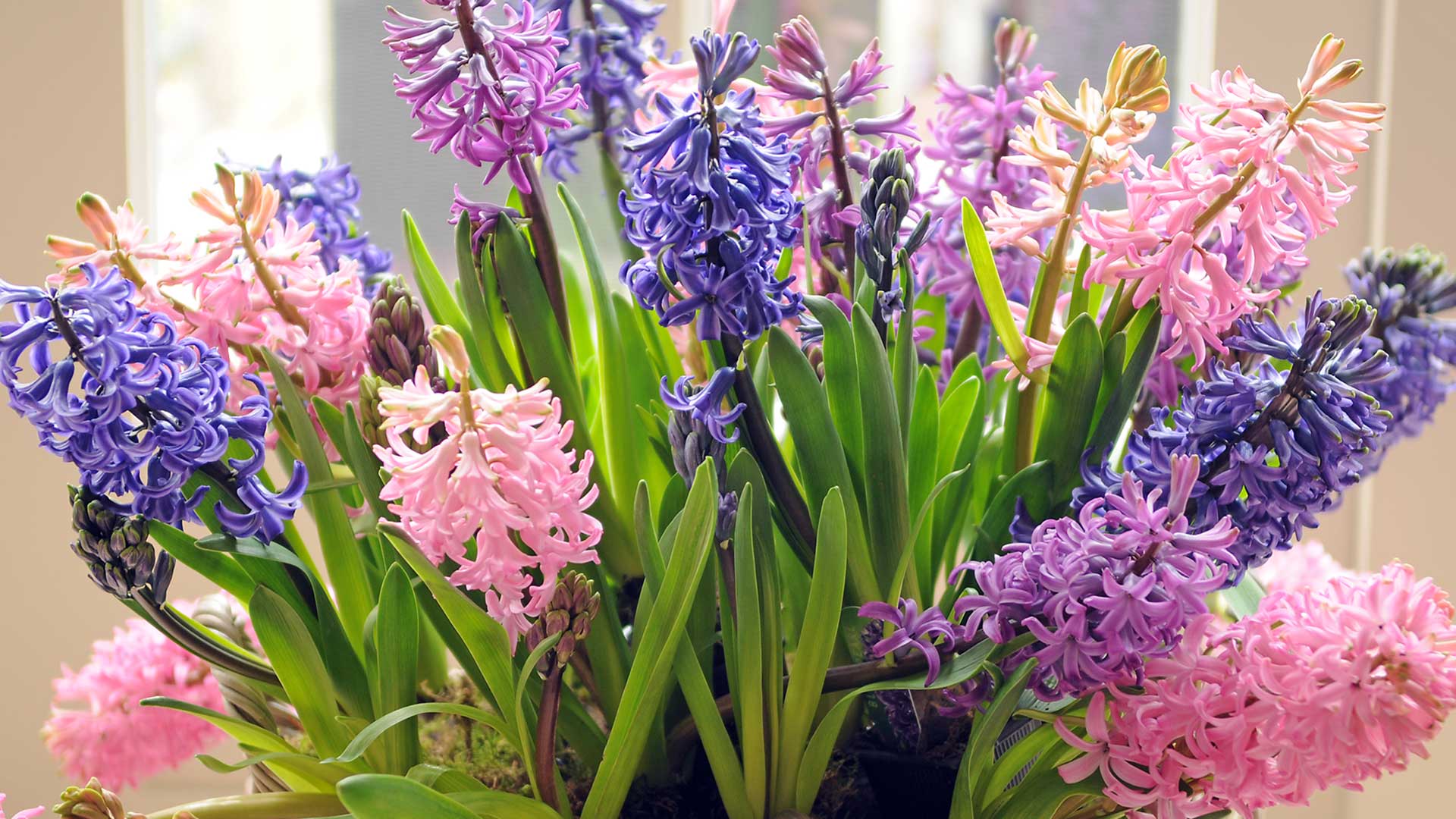

Learning how to grow hyacinths indoors is a simple way to brighten the grey days of winter and early spring. Not only are they beautiful, in an array of cheery hues, but they also fill a room with their sweet and spicy fragrance.
Like all indoor plant care, there are a few things to remember to get the most from these bulbs, but it's easy once you've got to grips with the essentials. You don't even need soil to grow them – hyacinths can grow happily in special vases filled with water. And, if you plant them early enough, you can enjoy them as part of your Christmas decorating ideas.
We turned to the experts for advice on growing these elegant blooms. Below, you'll find their top tips, as well as what to do with the bulbs once they've finished flowering.
How to grow hyacinths indoors – the key tips you need to know
While hyacinths are undeniably gorgeous, bear in mind that they are poisonous to pets (as well as to humans), and should be kept safely out of their reach. In fact, this applies when growing all bulbs for spring flowers, including planting amaryllis bulbs in pots.
Touching the bulbs can also irritate the skin, so it's best to wear gardening gloves, such as these ones from Sarah Raven, while planting.
When to plant hyacinths indoors
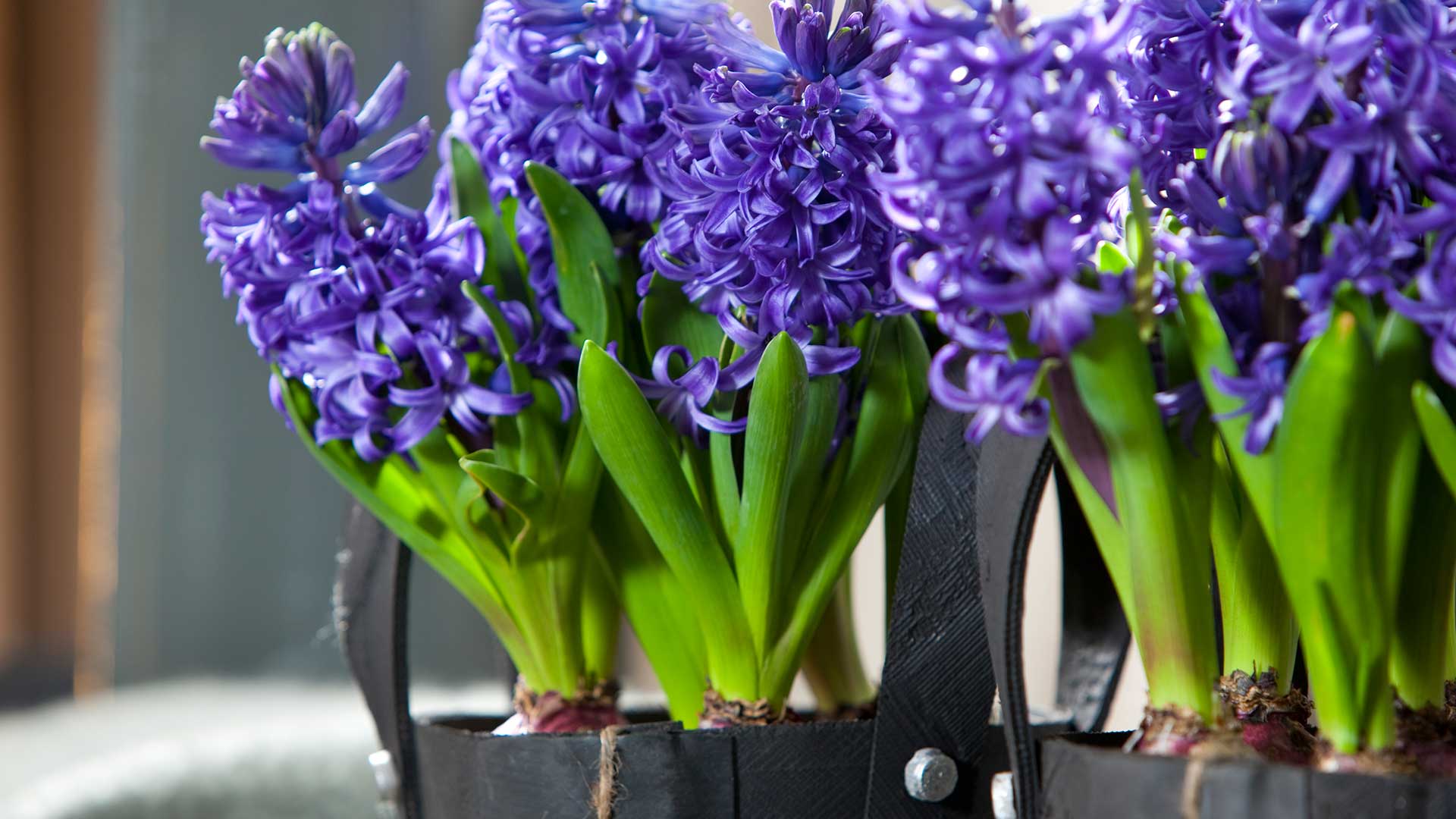
Hyacinths are a favourite for their sweet perfume
Growing hyacinths indoors allows you to enjoy earlier flowers than if you were to plant them in the garden. This technique is known as "forcing", and can be tried with other bulbs, too (narcissi are another popular option).
Like when planting spring bulbs outdoors, indoor hyacinth bulbs should be planted in autumn. Exactly when you do this depends on when you want them to flower.
Sign up for the woman&home newsletter
Sign up to our free daily email for the latest royal and entertainment news, interesting opinion, expert advice on styling and beauty trends, and no-nonsense guides to the health and wellness questions you want answered.
The important thing to remember is that once planted, hyacinth bulbs already prepared for forcing can take up to around three months to bloom. This means it's best to plant them in September if you want flowers in time for Christmas.
Choosing hyacinth bulbs to plant indoors
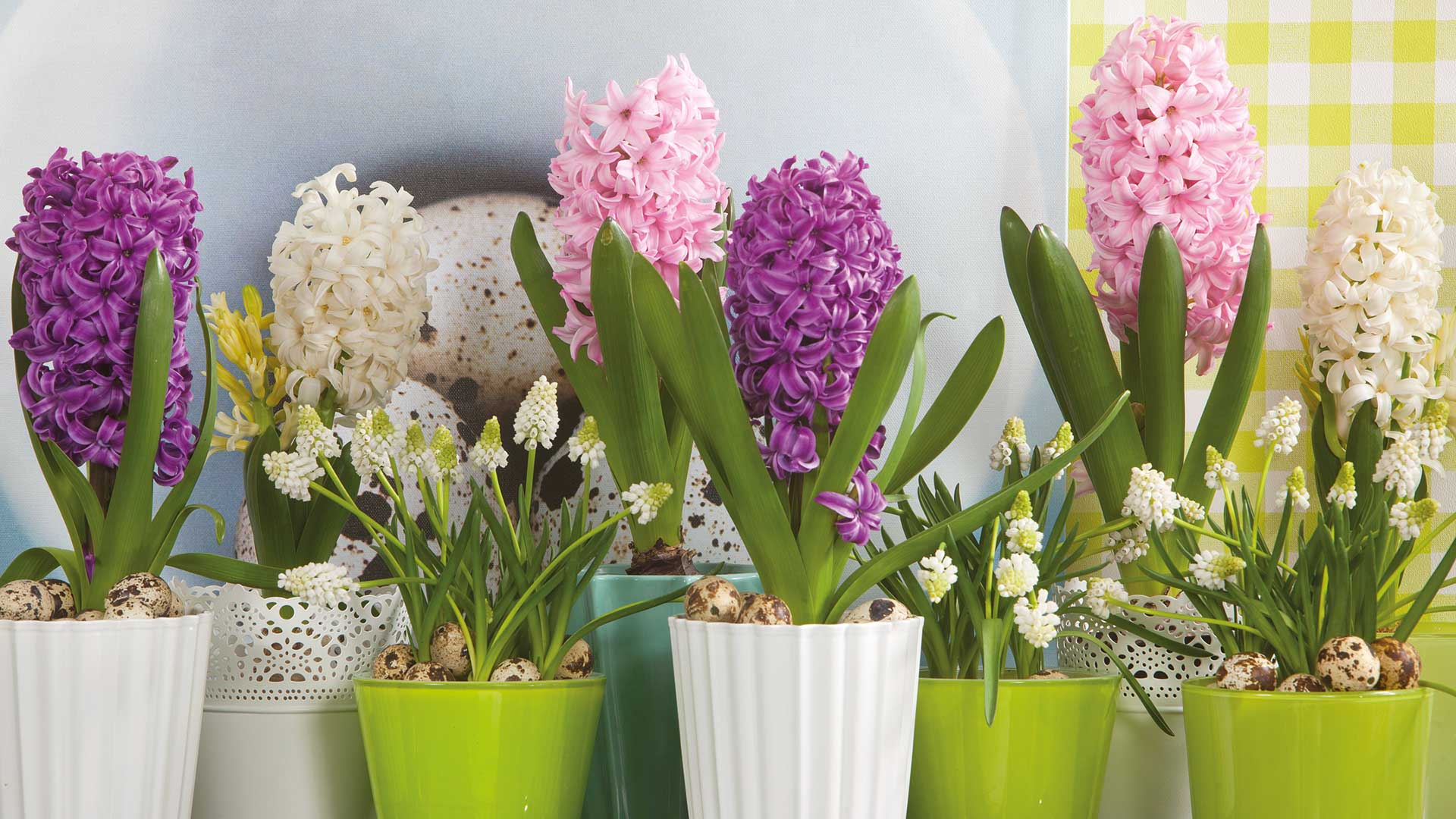
Choose bulbs that have already been prepared for growing indoors
“It’s best to buy ‘prepared’ or pre-chilled hyacinth bulbs for indoor forcing," says gardening expert Mark Lane. "These have been exposed to cold conditions that mimic winter, which stimulates early flowering. Larger bulbs free of soft spots are ideal, as they typically yield larger blooms."
Garden centres and other retailers will usually label bulbs that are ready for growing indoors. For instance, you can buy a collection of hyacinths for forcing from Sarah Raven, which includes 15 bulbs of three different varieties.
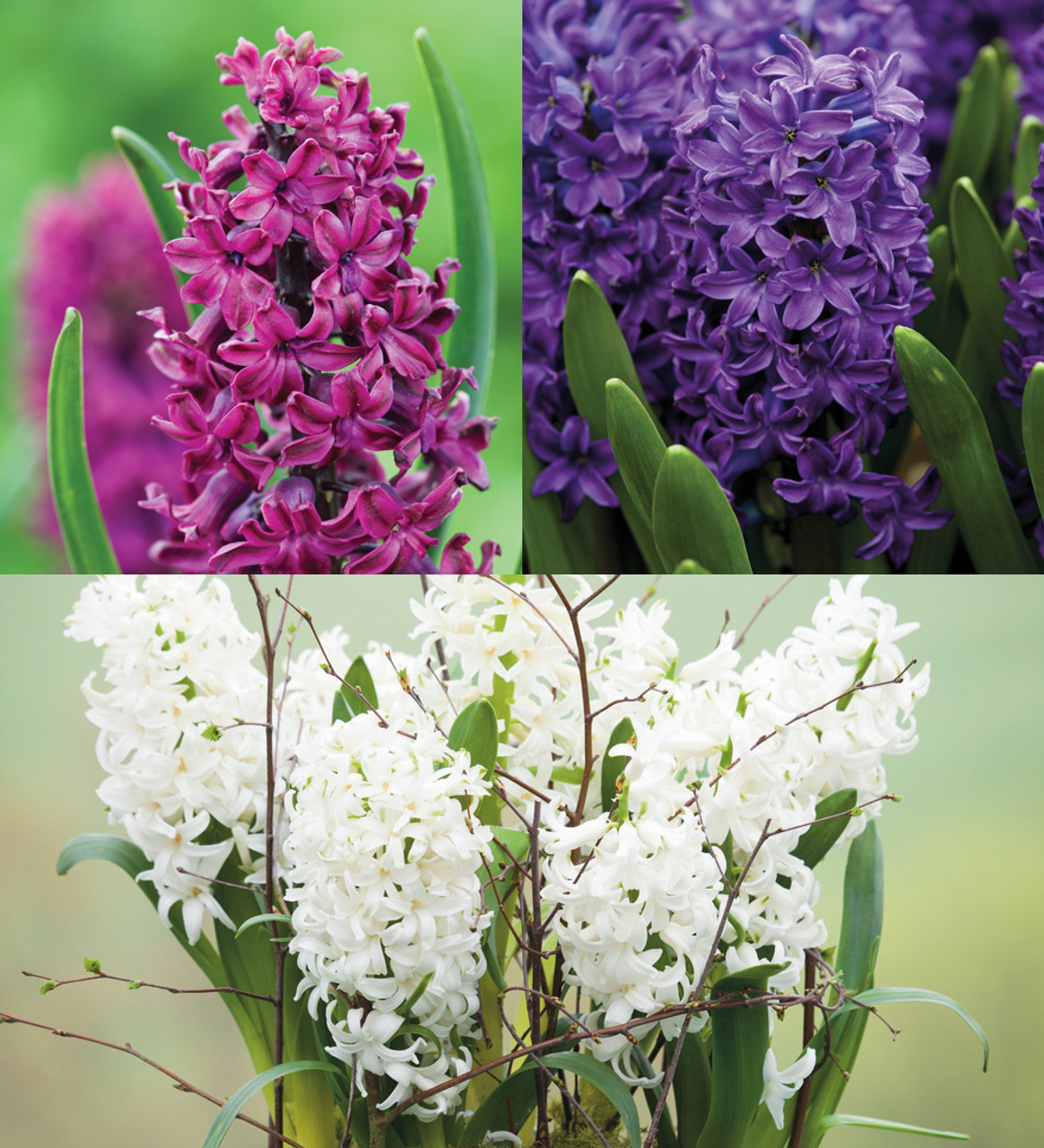
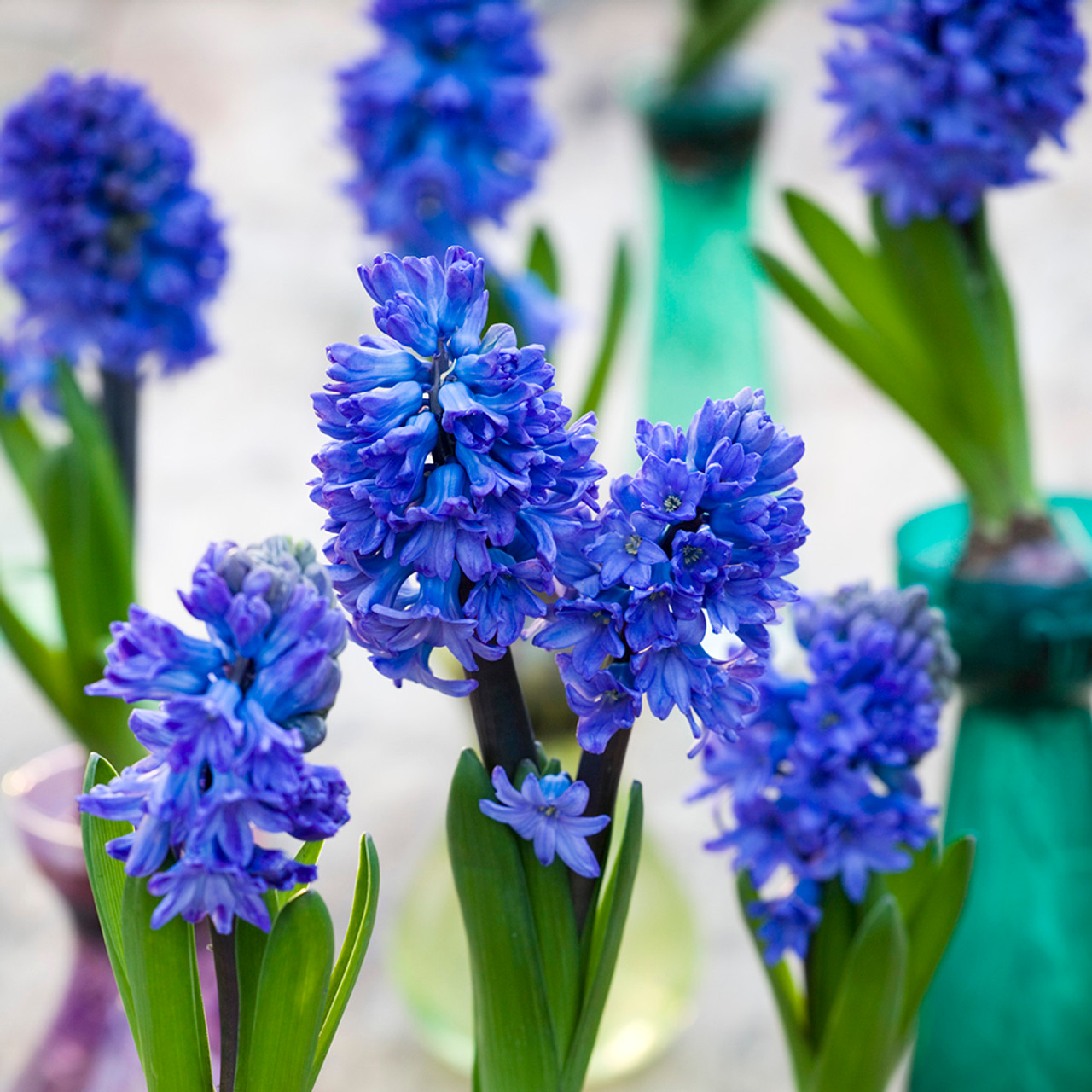
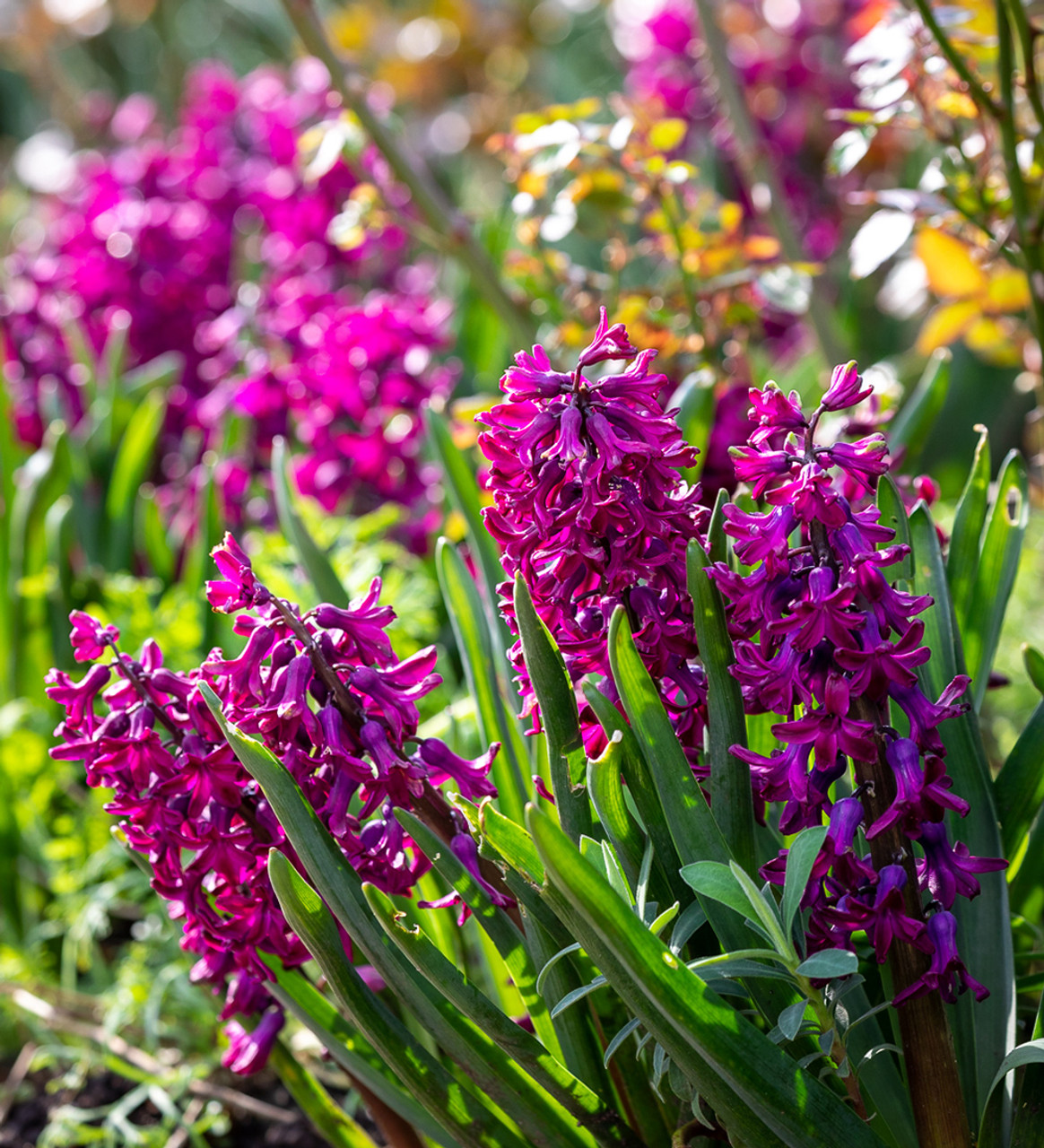

Not only is Mark a presenter on BBC's Gardeners' World, but he is also an accredited gardening expert at stairlift and homelift company Stannah. Mark also runs his own gardening business, when not providing useful tips and tricks for blossoming green thumbs.
How to plant hyacinths in soil
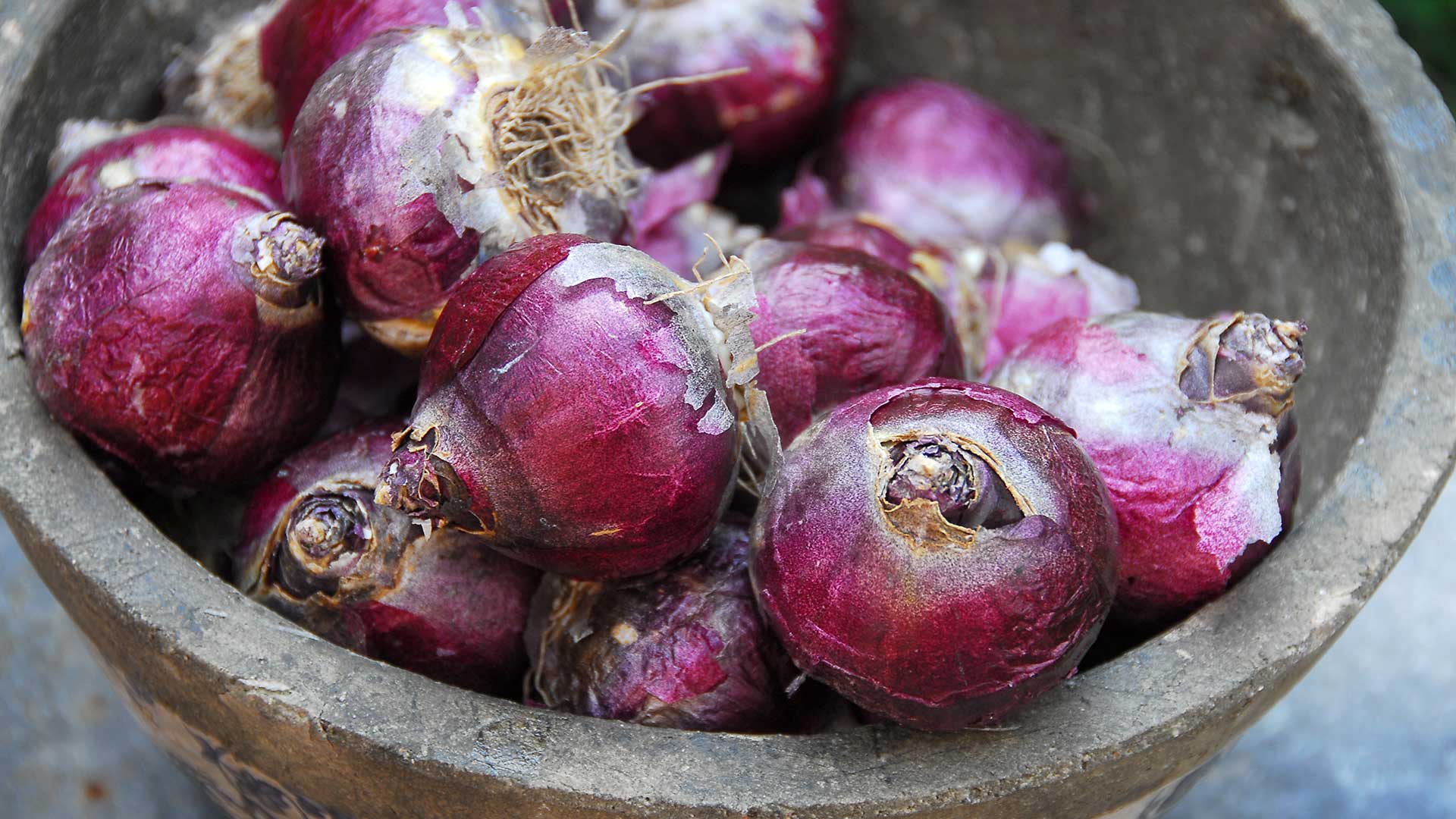
Bulbs need good drainage to prevent rot
“Choose a container deep enough for the roots to anchor the plant, and large enough to insert small twigs, as you may need these to stake the plants as they grow," advises gardening expert Sarah Raven. "I recommend placing gravel at the bottom of your pot to improve drainage, as hyacinths prefer well-drained soil."
Sarah then says to plant the bulbs close to one another (but ensure they don't touch), with the pointy ends poking out of the compost’s surface. “Once potted, place them in a cool, dark cupboard or corner of a shed where temperatures don’t exceed 10°C or fall below 4°C," she instructs. The roots will develop over the following weeks. "Check occasionally that the compost is moist, but be careful not to overwater, as this can result in bulb rot.
“Once flower spikes reach around three centimetres in height, bring the pot into cool, light conditions," Sarah continues. "It’ll need to stay in these conditions for about three weeks, until you see some colour appearing on the bud."
When you can see some colour, Sarah says to bring your pot into a light, warm room. "You’ll need to stake around the edge of the pot at this point, as the weight of hyacinths can cause flowers to droop.”
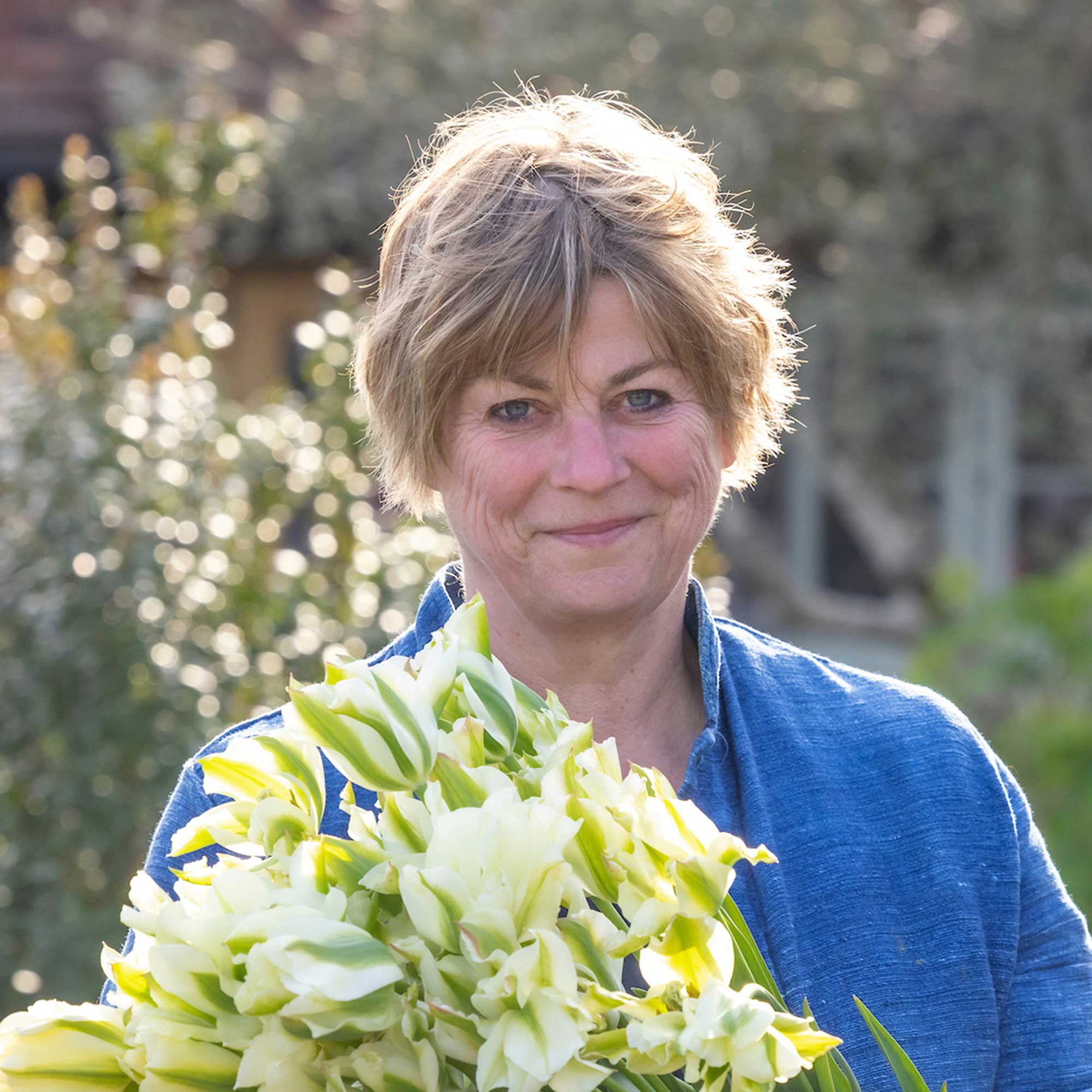
Since the publication of her first book, The Cutting Garden, Sarah Raven has led the way in introducing a new kind of productive gardening. She aims to create intense colour and beauty with a practical, easy-to-achieve approach. Sarah’s love of gardening extends to all areas, from growing cut flowers and delicious vegetables from seed to designing stunning gardens packed with variety, colour, and scent.
Sarah Raven's The Cutting Garden, £25 at Sarah Raven
Sarah's book is a thorough guide to all-year-round gardening, including how to grow shrubs, perennials, bulbs, annuals, and biennials.
How to grow hyacinth bulbs in water
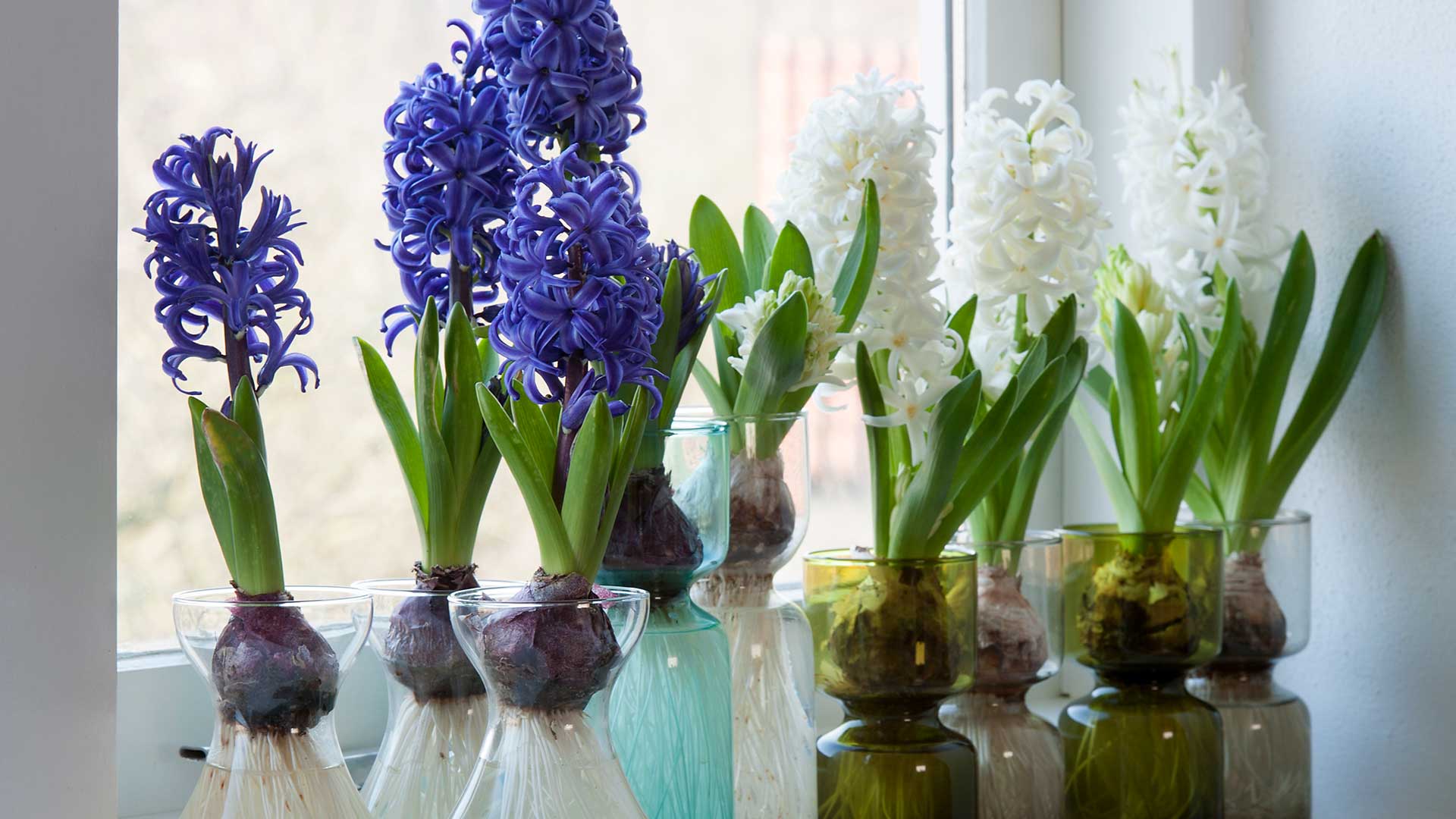
Using bulb-forcing vases is a simple alternative to planting bulbs in soil
If you don't have any compost or potting soil handy, you can try growing these alluring plants in bulb-forcing glasses and water. This method allows you to watch the roots as they grow.
Dobbies senior plant buyer, Claire Bishop, advises filling the glass so the water is just below the bulb’s base. "Place the bulb so its roots touch the water, but do not submerge it," she says, adding how the glass should then be put in a cool, dark space to encourage root formation.
"Once the shoot reaches 7-10cm, move the glass into full light and rotate it half a turn each day to encourage even growth," Claire continues. "Remember to maintain water levels, topping up as needed."
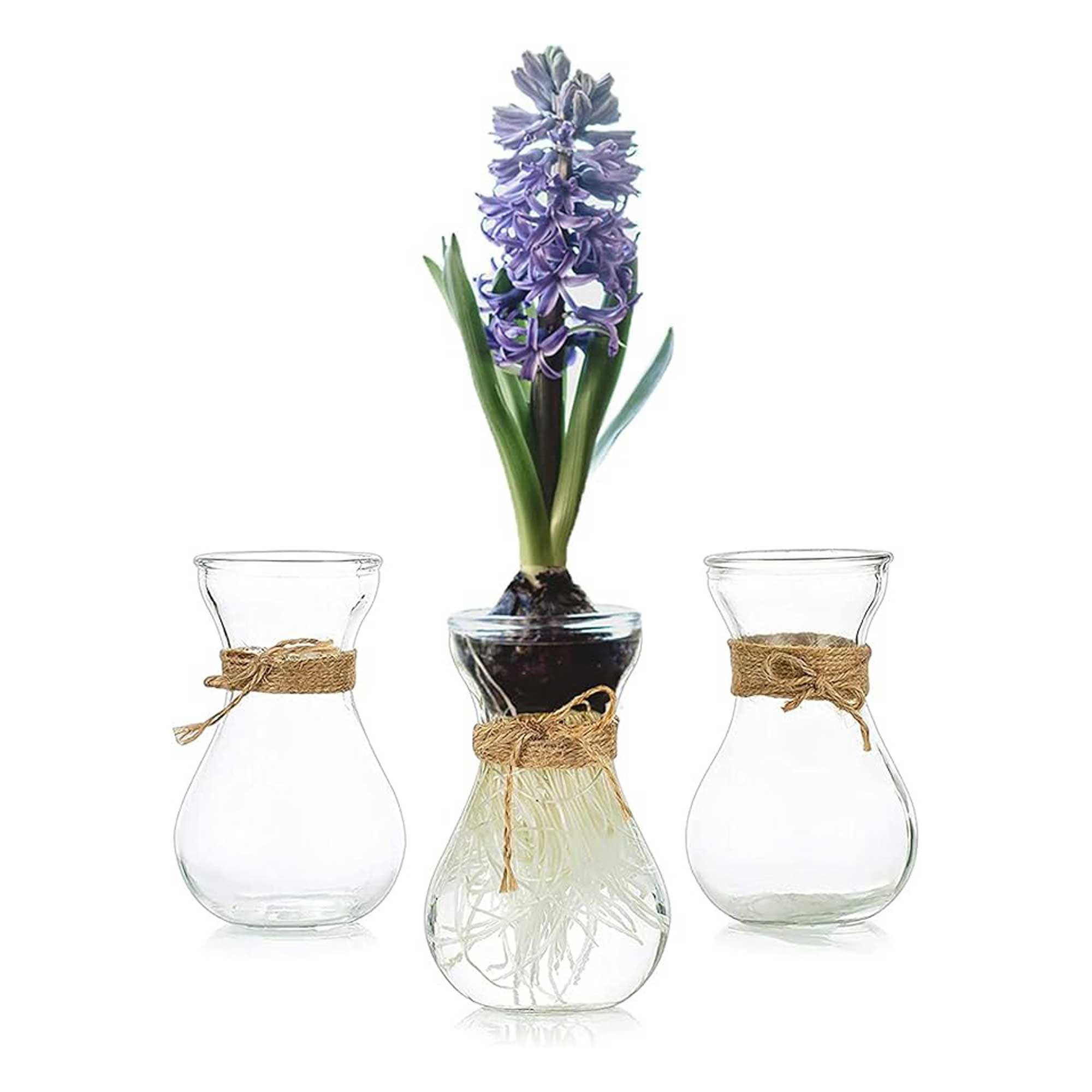
When not being used to force hyacinth bulbs, these glass vases from Hewory are perfect for displaying small bunches of blooms.
How to care for hyacinths indoors
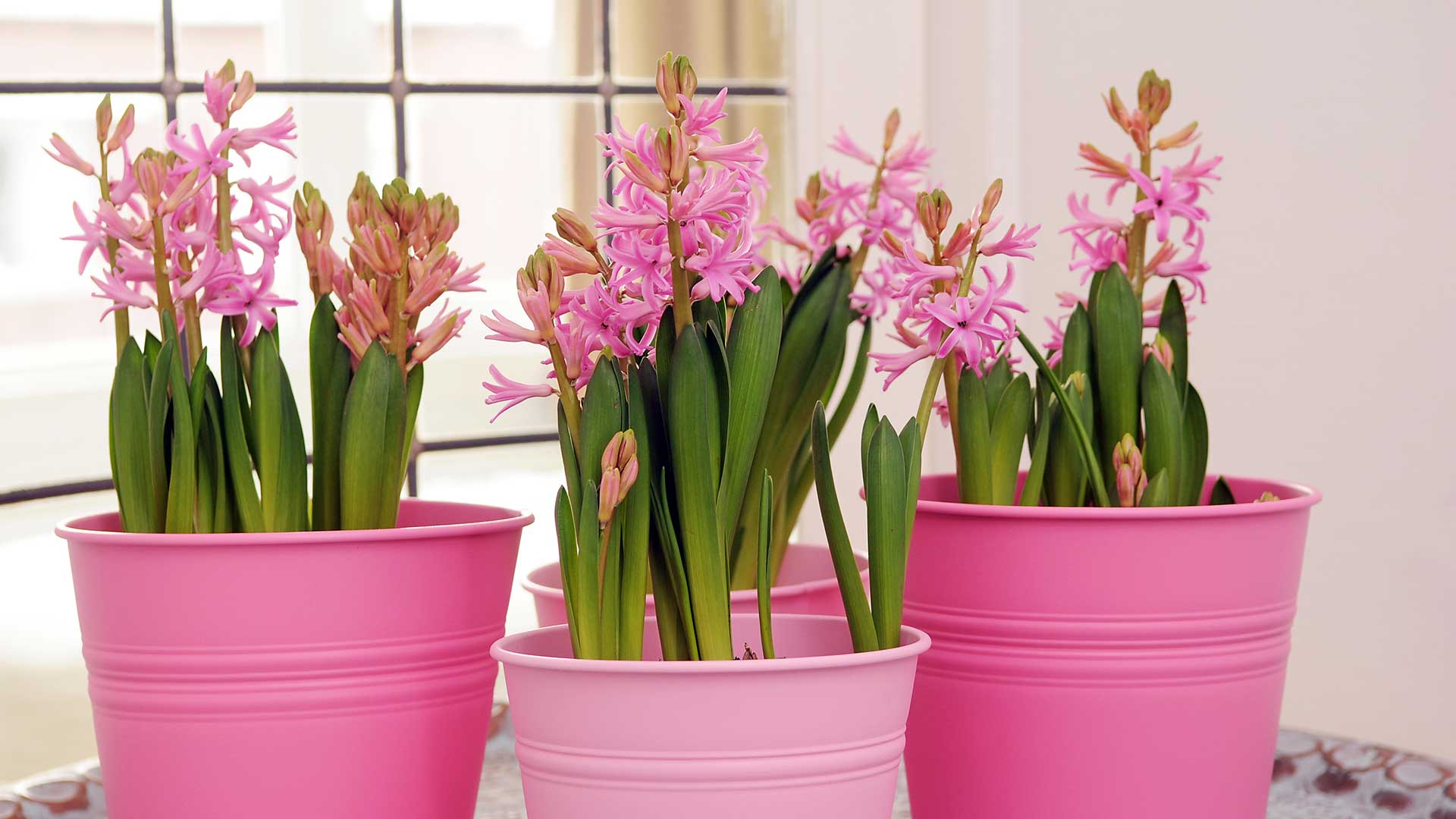
Position your hyacinths away from heat sources
Knowing how to water plants is a key factor for keeping indoor hyacinths planted in soil healthy. Lightly dampen the compost when it feels dry.
"Maintaining a cooler temperature while in flower can help them stay upright and extend their display," adds Claire. With this in mind, it's best to keep them away from radiators.
FAQs
What should you do with your indoor hyacinth after it's finished flowering?
Hyacinths are perennial plants, which means knowing what to do with hyacinths after flowering means they may flower again next spring with the right care.
Claire recommends transferring them outdoors once they've finished blooming. "Position them in full sun to thrive – they may struggle and thin out in shaded spots." Similarly to planting tulips, somewhere with well-draining soil is best.
Like how you'd treat daffodils after flowering, cut back your hyacinths' flower stems, but leave the foliage to die back naturally to continue feeding the bulb.
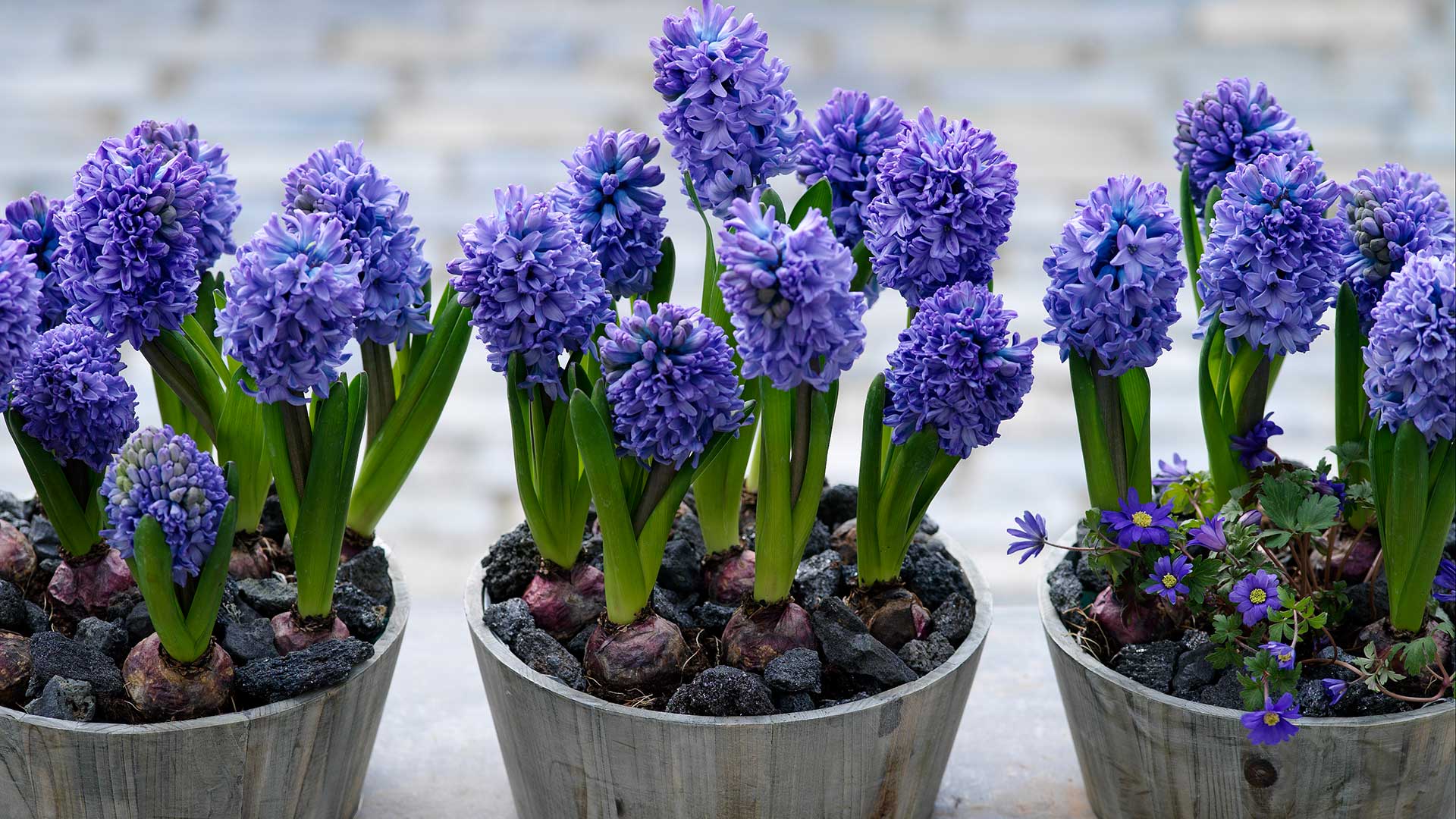
You can plant your bulbs outdoors in the ground once they've finished blooming
What are some recommended hyacinths to grow indoors?
For vibrant pink blooms, try planting the award-winning "Jan Bos" hyacinths. "Delft Blue" is another lovely and award-winning option with pale blue flowers. For purple blooms, try "Woodstock", from Sarah Raven, or for a simple white variety, try "White Pearl". Remember to choose bulbs that have been prepared for forcing.
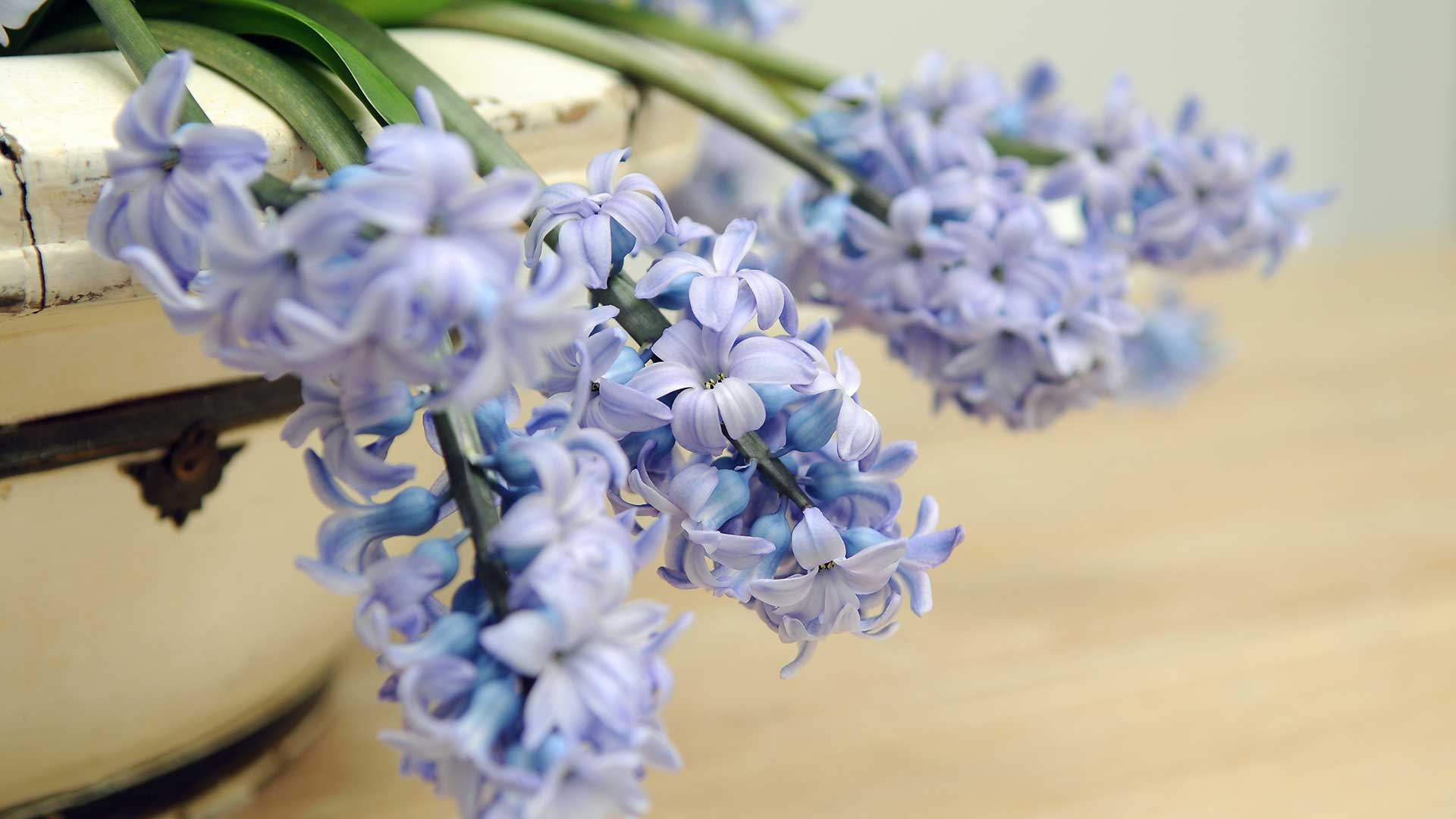
Pale blue hyacinths offer elegant charm
While learning how to grow hyacinths indoors is a great way to prettify your interior, now's also a good time to consider your outdoor space, too. There are lots of gorgeous winter bedding plants that will brighten the view.

The garden was always a big part of Holly's life growing up, as was the surrounding New Forest where she lived. Her appreciation for the great outdoors has only grown since then; she's been an allotment keeper, a professional gardener, and a botanical illustrator. Over three years ago, Holly started writing about plants and outdoor living full-time, first for Gardeningetc.com and now for popular lifestyle titles such as Homes & Gardens.
-
 There aren’t many 90s looks I’d be happy to see trending again, but Scarlett Johansson’s choker is a retro revival I'll be revisiting
There aren’t many 90s looks I’d be happy to see trending again, but Scarlett Johansson’s choker is a retro revival I'll be revisitingThe collar-style necklace is officially back from the wardrobe wilderness of the nineties and looking better than ever
-
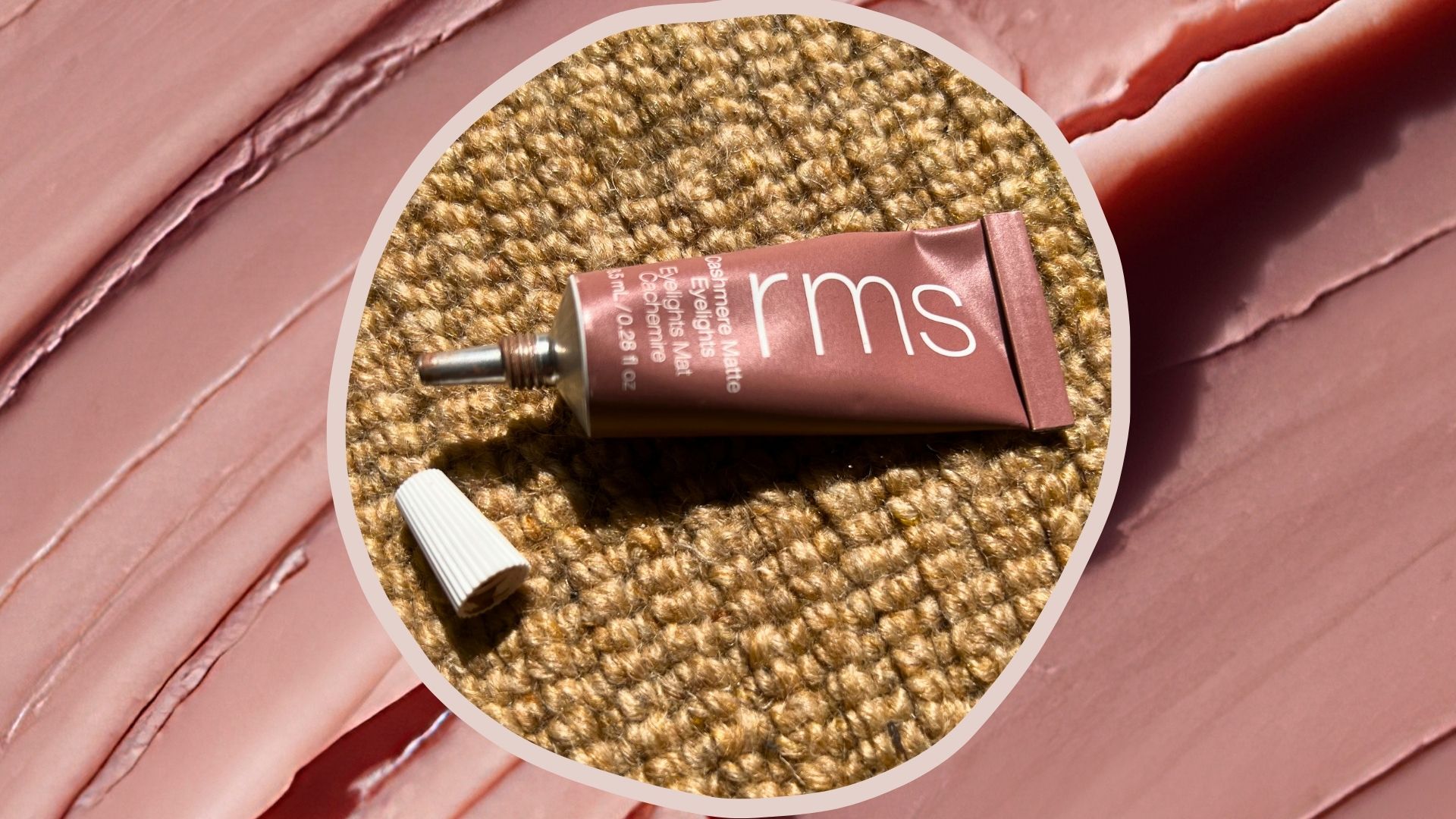 If you try one beauty product this week, I think it should be this perfect cream eyeshadow that flatters less-firm lids
If you try one beauty product this week, I think it should be this perfect cream eyeshadow that flatters less-firm lidsRMS Beauty should be on everyone's radar, says this week's Sunday Service - and this is your ideal entry point
